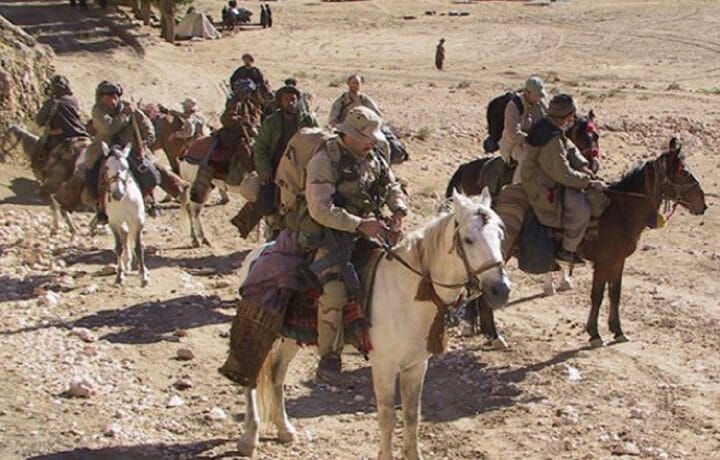“You load sixteen tons, what do you get?
Another day older and deeper in debt.” – Tennessee Ernie Ford, Sixteen Tons
On the surface, he was the ideal candidate for one of the best jobs in the Army. A successful battalion and brigade commander with multiple deployments under his belt, he was smart, resourceful, energetic, and on every senior leader’s short list for critical assignments. But he was also tired. Dark circles hung below deep-set, hollow eyes. Stand close enough to him and you could feel the exhaustion in his body. A conversation with him was like riding an emotional roller coaster, and hard, exasperated sighs would punctuate every burst of dialog.
After one such conversation, he walked away, shoulders slightly slumped. I looked at the one-star general next to me and he drew a long breath while he considered his words. “He’s fried,” he said. “It’s only a matter of time.” Nothing more needed to be said.
But he kept on pushing. More deployments, more moves, and no time in between to catch a breath. Several years and a couple of promotions later, the crash was epic, newsworthy, and not wholly unexpected. Those who feigned surprise either were in a complete state of denial or blind to the obvious signs. Those of us who saw it coming years earlier shared a sense of disappointment – as much in him as the institution that refused to allow a “fast mover” to take a much-needed break.
Long before the crash, he was – as Tennessee Ernie Ford was fond of saying – “Rode hard and put away wet.” Worn down. Tired. The phrase itself derives from equestrianism, where the failure to properly cool down and groom a horse after a hard ride can lead to physical as well as mental issues. A poorly tended horse can suffer from chills and muscle cramps and become ill-tempered and resentful. In the same vein, a person who is “rode hard and put away wet” is just as likely to suffer as a result of neglect or mistreatment.
It didn’t need to be that way, though. In their 2008 book, The Truth About Burnout, authors Christina Maslach and Michael Leiter not only describe the characteristics of burnout – emotional exhaustion, brooding cynicism, and a precipitous decline in self-confidence – but offer a prescription for intervening in your own demise. The formula isn’t particularly complex and relies largely on your own ability to self-reflect.
Throttle back on the stress.
Not surprisingly, most of us create our own stress. We procrastinate, take on more than we can conceivably complete, and set completely unrealistic deadlines. People who are driven by achievement or exhibit perfectionist traits are especially vulnerable. The more we anticipate the future, the greater the amount of stress we create. This self-imposed stress only serves to compound the day-to-day pressures of life. Being aware of your own tendencies is the first step in reducing the stress in your life.
Take a knee.
Whether you rely on mindfulness or simply enjoy “going to my happy place” you have to have an outlet for rising tension and anxiety. The longer you allow those to build unchecked, the greater the amount of physiological damage they inflict. Find a hobby, read a book, or enjoy a cup of coffee as the sun rises in the morning. What’s important is that have something you can do to relax your breathing, slow your heart rate, and rest your mind.
Know your limits.
A significant source of stress comes from taking on more than you can handle, either in terms of workload or your own abilities. Knowing and respecting your limits necessitates some brutal self-reflection and an honest assessment of your strengths and weaknesses. If you’re going to tackle projects that are beyond the scope of your abilities, surround yourself with a capable team who can help you see it through to the end. Otherwise, respect your limits and steer clear of situations that might push you beyond those limits.
See the forest.
Oftentimes, we find ourselves so mired in the details of a situation that we “can’t see the forest for the trees.” This lack of perspective can be a major source of anxiety as we struggle to find solutions that are often easily within reach. Spend enough time among the trees and your stress level can quickly become unmanageable. Learn to step back and view a problem or situation from a variety of perspectives. Not only will this help you to find optimal solutions, it will also help you to channel your stress in more productive ways.
Pick and choose your battles.
It’s a simple formula: conflict leads to stress and stress leads to burnout. Every battle takes time out of your day and that time is a limited resource. If you’re fighting every battle that comes along, you’re not only losing valuable time that could be put to better use in more productive ways, you’re creating unnecessary stress for yourself. Not everything is important. Not everything is worth fighting for. Knowing what is and what isn’t will help to reduce stress and, ultimately, the likelihood of burnout.



